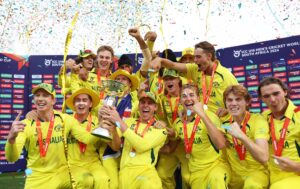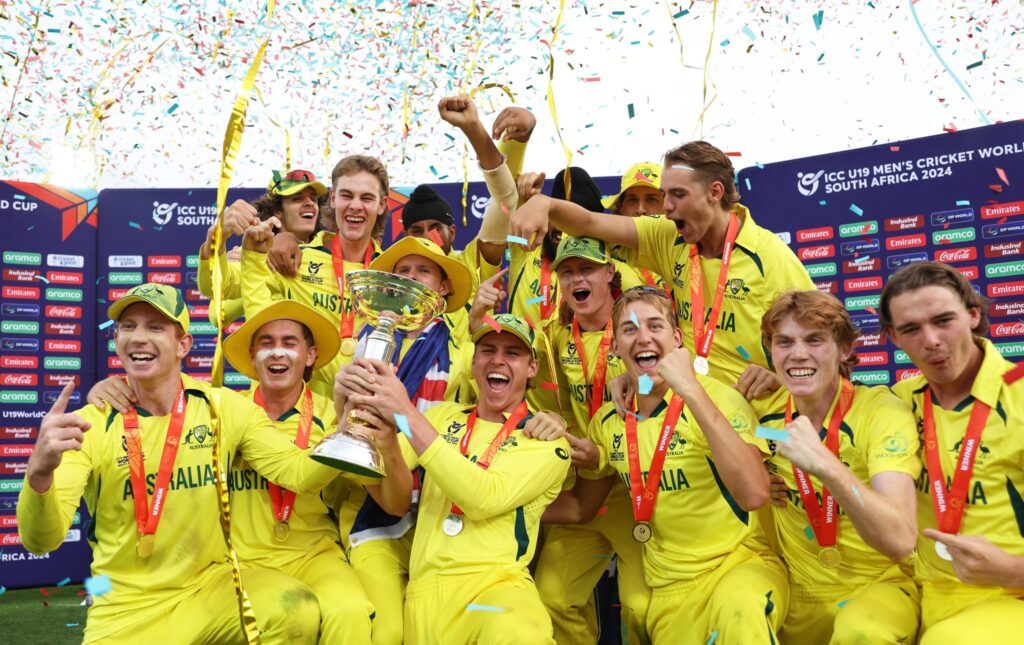
Much like the 2023 World Cup, India’s unbeaten streak was broken by an Australian team, which defeated the Men in Blue by 79 runs to win the U-19 World Cup 2024. It was a full-fledged domination right from the first ball to clinch their fourth U-19 World Cup title, and another heartbreak for Indian fans within the span of just three months.
Chasing a target of 254 on a pitch having pace, bounce, and lateral movement against a formidable Australian bowling attack proved to be a daunting task for India. Despite needing a strong start, India lost an early wicket, while Australia maintained their fielding standards, except for a dropped catch. Callum Vidler and Charlie Anderson bowled with precision, leaving India struggling.
The situation worsened for India after the drinks break as the heroes of the semi-final – skipper Uday Saharan and Sachin Dhas – fell in quick succession. Mahli Beardman capitalised on the solid start provided by the new ball bowlers, keeping Australia in control. India appeared disjointed, and it was then that Raf MacMillan’s spin added to their woes.
Although Adarsh Singh fought valiantly, India never looked in contention. Beardman eventually dismissed Adarsh for his third wicket, sealing India’s fate. Despite late resistance from Murugan Abhishek, who scored 42 runs off 46 balls, it was too little too late. Naman Tiwari remained unbeaten on 14 as India were bowled out for 174.
Earlier in the day, after winning the toss, Australia opted to bat first. India made an impressive start with Raj Limbani dismissing Sam Konstas for a duck in the third over. However, Australia’s Harry Dixon and Hugh Weibgen then formed a resilient partnership, accumulating 78 runs from 109 balls, which proved to be the highest partnership against India in the tournament. Tiwari struggled in his opening over, leading to him then being kept out of the attack until the 21st over. Sensing the need for spin, Saharan reintroduced Naman, who promptly dismissed both well-set batsmen in quick succession.
Harjas Singh and Ryan Hicks then steadied Australia’s innings with a fifty-plus partnership. Despite their efforts, India struck back when Limbani removed Hicks for 20 runs. Although the partnership between Harjas and Hicks was quick, adding 66 runs from just 70 balls, Australia required contributions from other players.
Harjas, who had an average of 8 and a highest score of 17 before this match, surprised everyone by scoring a half-century, including three fours and three sixes. However, his innings was cut short by Saumy Pandey in the 38th over. Australia continued to struggle as MacMillan failed to make an impact, departing for just two runs, leaving them at 187-6.
Ollie Peake, who had previously played a crucial innings against Pakistan in the semi-finals, once again proved his worth by guiding Australia past the 250-run mark. Peake remained unbeaten on 46 runs, providing valuable support to the lower order. Ultimately, those runs from Harjas and Peake made all the difference.




